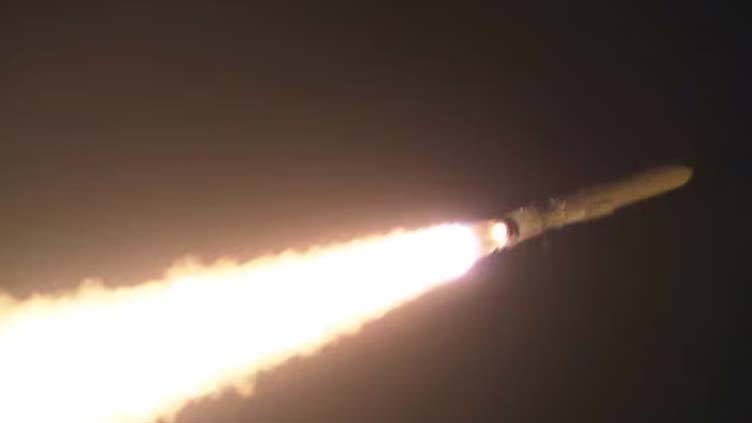North Korea says it tested new strategic cruise missile

World
South Korea said it believed the firing was to test upgrades of existing missiles' capabilities
SEOUL (Reuters) - North Korea said it tested its new strategic cruise missile on Wednesday, state media KCNA reported on Thursday, confirming what the South Korean military said the day before.
The missile dubbed "Pulhwasal-3-31" is currently under development and the test-firing had no impact on the security of neighbouring countries, the state media said, adding it had "nothing" to do with the regional situation.
The test was also part of the process of updating the country's weapon system, the report said, citing The Missile Administration.
South Korea's Joint Chiefs of Staff said it believed the firing was to test upgrades of existing missiles' capabilities.
On Wednesday, the South Korean military said the North had fired multiple cruise missiles towards the sea off its west coast at around 7 a.m. (2200 GMT on Tuesday) while Seoul's defence minister, Shin Won-sik, condemned the launches as a serious threat to his country.
"Strategic" typically refers to nuclear-capable weapons.
North Korea carried out its first test of a cruise missile with possible nuclear strike capabilities in September 2021.
On Thursday, South Korea said it was starting mass production of medium-altitude reconnaissance drones with the goal of deploying them in 2027 to improve surveillance capabilities and contribute to defence exports.
North Korea's cruise missiles usually generate less interest than ballistic missiles because they are not explicitly banned by any U.N. Nations Security Council resolutions.
But analysts have said intermediate-range, land-attack cruise missiles were no less a threat than ballistic missiles and are a serious capability for North Korea.
Cruise missiles and short-range ballistic missiles that can be armed with either conventional or nuclear bombs are seen as particularly destabilising in the event of conflict as it can be unclear which kind of warhead they are carrying.


